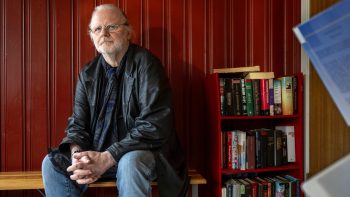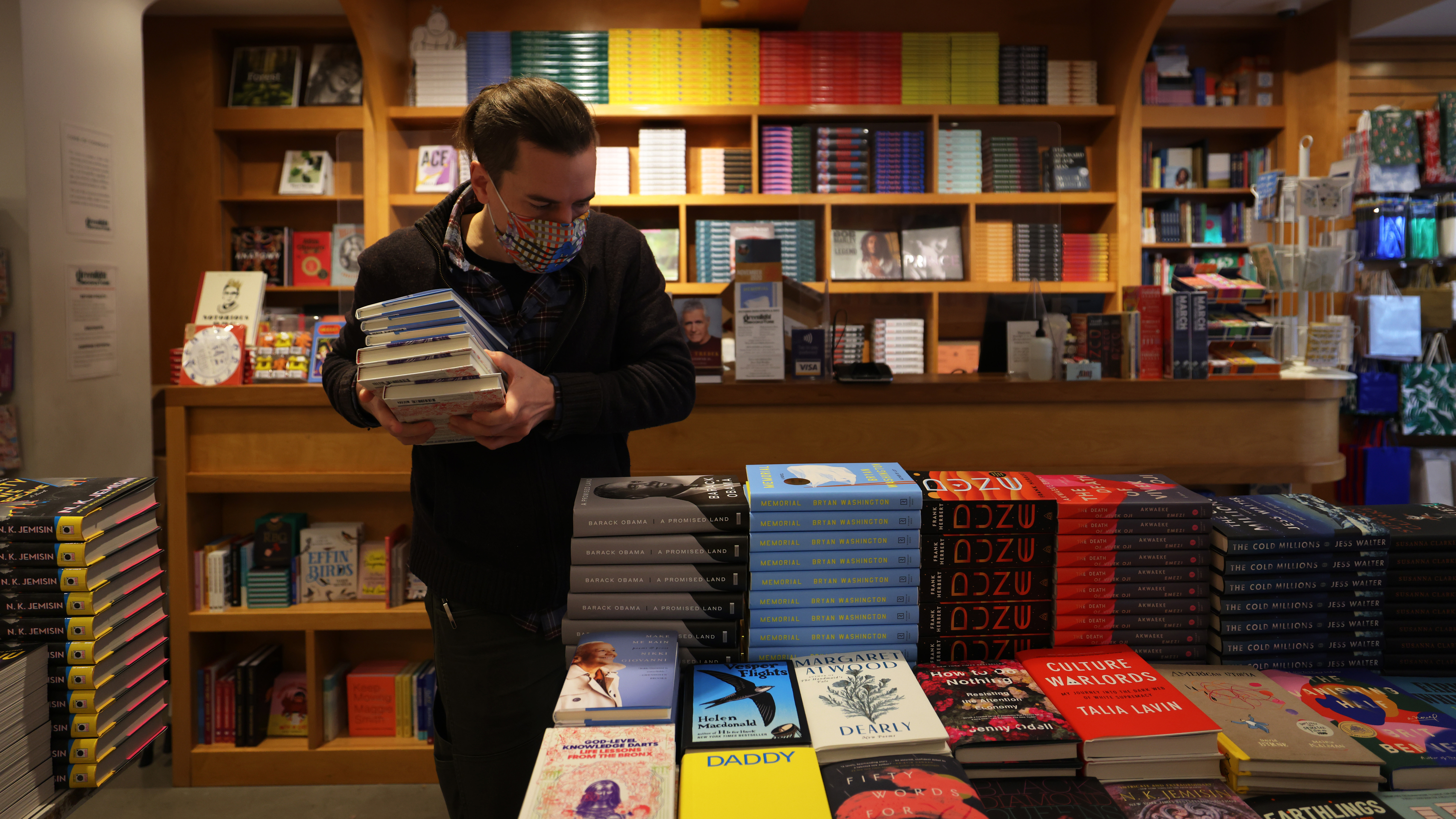
Celebrity book clubs are “extremely influential” in the publishing world
Celebrity book clubs are “extremely influential” in the publishing world

Whether it’s Oprah, Reese Witherspoon, or the “Today Show’s” Jenna Bush Hager, when a book gets the celeb book club treatment, it often sends up selling. And the majority of new titles selected for these clubs end up on the New York Times Best Sellers list, according to journalist Sophie Vershbow.
“I worked within the Big Five— the largest publishing houses, at Simon & Schuster and Penguin Random House — for about a decade,” said Vershbow. “I saw such a shift to having some of those more traditional media sources become less influential in sales. And so ultimately, a lot of these book clubs have sort taken that place and started selling a lot of books.”
But what does it take to get picked by Oprah or Reese? And are certain publishers favored over others? In reporting a story for Esquire, Vershbow found that over the last decade, over 40% came from Penguin Random House alone.
“This is an industry based on connections and lines of power,” said Vershbow. “So of course, if a publisher paid a significant amount of money for, let’s say, a commercial — I hate this term — but ‘women’s fiction book’ that seems like it might be very well-aligned with one of the book clubs, they are most likely going to try harder to get that book placed in one of them through networks of connections.”
“Marketplace” host Amy Scott spoke with Vershbow about the case for celebrity book clubs and whether we might see a male celebrity-led book club one day. The following is a transcript of their conversation.
Amy Scott: At the outset of your story, you say it’s not going to be some kind of takedown of celebrity book clubs. You actually think they’re a good thing for books and for reading. Why is that?
Sophie Vershbow: It is increasingly challenging to sell books. I worked within the Big Five — the largest publishing houses, at Simon & Schuster and Penguin Random House — for about a decade. And even in my time in the industry, I saw such a shift to having some of those more traditional media sources become less influential in sales. And so ultimately, a lot of these book clubs have sort of, you know, taken that place and started selling a lot of books. And that’s really made them extremely influential in the industry.
Scott: So how do books actually get chosen? You have a great line that’s sort of “an elusive blend of personal tastes, connections, cold pitching and good old-fashioned luck.” So what’s the process for getting my book in front of these celebrities?
Vershbow: In the case of both Read with Jenna and Oprah’s Book Club, it’s a little bit more of a traditional path. So there are people within those organizations who publicists, editors, publishers, etc., can pitch. Reese Witherspoon’s book club claims that they do not accept pitches and that they source all of the books through an independent scouting team that they work with. What’s so interesting about this is I think a lot of people want there to just be one easy answer, you know: “Something sketchy is happening behind the scenes if one publisher has more books.” But ultimately, these are individuals with their own tastes. And I have an anecdote in the piece that one of Oprah’s Book Club picks was selected just because she happened to find a manuscript of it in her living room with no recollection of where it came from.
Scott: You said, like, that’s the sound of a thousand publicists fainting or something. You had a great line about that.
Vershbow: Exactly. And, you know, I think that’s because there’s just so much competition for very few slots. And I think that’s one of the reasons why I’m so supportive of these book clubs is because they have become so impactful in an increasingly challenging media environment, and ultimately more books being sold is a good thing.
Scott: But even if the choices can be organic, like Oprah finding a manuscript, you do write that over the last seven or so years, more than 40% of book club selections come from just one publishing house, Penguin Random House. I mean, that doesn’t happen by accident.
Vershbow: Nothing, ultimately — with the very rare exception of an Oprah manuscript — happens by accident in publishing. This is an industry based on connections and lines of power. So of course, if a publisher paid a significant amount of money for, let’s say, a commercial — I hate this term — but “women’s fiction book” that seems like it might be very well-aligned with one of the book clubs, they are most likely going to try harder to get that book placed in one of them through networks of connections than a book that they did not pay as much money for and were not expecting to sell as many copies.
Scott: You cite a staggering statistic in your story that somewhere between 500,000 and a million titles come out every year just in the U.S. I mean, it’s really amazing how many books there are, and some kind of weeding out is going to happen. But do you think it’s a problem that the big publishers are much more likely to have their books selected by these clubs and it leaves a lot of books overlooked from independent publishers, maybe authors who are underrepresented in publishing?
Vershbow: Yeah. I want to be clear that I don’t necessarily think it’s any of these celebrities’ responsibilities to have to care about this. They do not work for us. And this is great, this is a net positive. I would like to recommend that it would be great if they could perhaps set internal quotas around featuring a certain amount of independent publishers per year. I really think the solution to all this is more celebrity book clubs. There’s a huge void for other people with name recognition to step into this space — especially around say, marginalized communities. I mean, there’s no current large male celebrity running a book club.
Scott: Why do you think men haven’t seized this opportunity? Men like to read. People like famous men. Who’s going to start the first male celebrity book club?
Vershbow: A lot of people throw around the name Mark Ruffalo to me because he has posted a lot about his reading. I think he could be a great one. I would love to see a Gen Z male celebrity just really fall into this. You know, reading is … god, this is so silly, but cool. It’s considered a cool thing to be a part of. I feel like that could be such a great look for a Gen Z male celebrity to say, “Hey, we’re going to get more men into reading” — especially something like reading fiction.
There’s a lot happening in the world. Through it all, Marketplace is here for you.
You rely on Marketplace to break down the world’s events and tell you how it affects you in a fact-based, approachable way. We rely on your financial support to keep making that possible.
Your donation today powers the independent journalism that you rely on. For just $5/month, you can help sustain Marketplace so we can keep reporting on the things that matter to you.

















